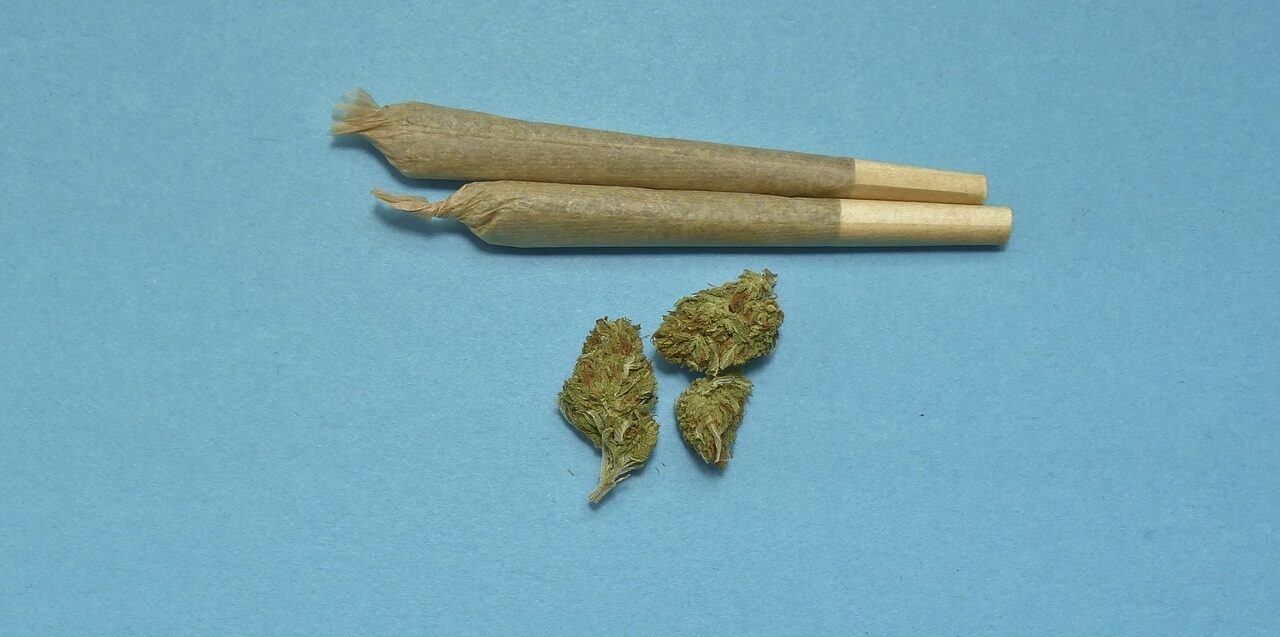How to quit smoking weed?
Are you planning to quit marijuana? Are you searching for methods to quit marijuana? Then you are in the right place.
While marijuana (otherwise called weed) is in some cases depicted as generally harmless, research has demonstrated the way that it can have various adverse effects on health. In addition, it is also proven to have more chances of addiction.
If you have any desire to quit weed, there are a few things you can do to work on your odds of coming out by using methods like tapering your use and the cold turkey method (for this method you have to be prepared for face the withdrawal symptoms), and make your life healthier.
This article focuses a portion of these strategies for how to quit smoking marijuana as well as data on the withdrawal side effects you might helpful.
Find Reasons For Quitting Weed
Before you decide on how to quit smoking, you need to figure out the reasons why you want to quit cannabis. Quitting an addiction is not as simple as it said, so if you find your valid reasons try to list them out by penning them down as these will help you get your self-awareness for the first big step you took. In short, the reasons help you strengthen your resolve to quit cannabis and achieve success eventually.
Firstly if you start thinking about why have you started the intake you may see yourself using it for instant stress relief or anxiety management. It may have helped you with your sleeplessness and other chronic pain. In research, many people listed that their initial use helped them feel- euphoria, relaxation or sedation, distortions in sensory perception and even slowing of time. That is because Tetrahydrocannabinol(THC) is the primary intoxicating chemical compound found in cannabis. The THC affects the brain by taking control of the moods, memory, thinking, and concentration of the person.

- Relationship problems
- Concentrating and memory issues
- Constant mood swings
- Losing interest in hobbies
- Slowing down of career success
- Financial problems
- Depression and anxiety disorders
- Lower life satisfaction
- Increased risk of schizophrenia(if you using marijuana for a long period)
- Increase in intake of other intoxicating substances like cocaine or alcohol.
If any of the above-mentioned symptoms were noticed in your experience please take Immediate steps to quit marijuana as early as possible.
Every person may have different reasons to quit Marijuana but the more you neglect the more reasons you’ll find common with other Marijuana users.
So it’s never too late to take your step toward quitting Marijuana and starting a better life.
Types of approaches for quitting Marijuana
If you decide to stop smoking weed, you have to know that not all can be overcome within a period. As many people have many reasons to quit, few find it easy based on their experience but remember that doesn’t apply to all. So it’s your own experience that definitely es whether you develop a dependence or an addiction.
Experts suggest 2 successful methods for quitting Marijuana – one is tapering your use, which is a slow process and the other is quitting cold turkey this one helps those who want to quit marijuana immediately.
Cannabis use disorder is more likely to develop in individuals who began smoking weed at a younger age or use the drug heavily. The National Institute on Drug Abuse (NIDA) suggests that around 30% of people who use Marijuana have a cannabis use disorder.
Procedures for Quitting Marijuana
Let’s check out How tapering your use works- Tapering is a process where you will be reducing the dosage level of marijuana consumption over some time. Here we focus on the body’s capability to adjust to the lower level of substance use. In this case, the drug withdrawal symptoms have a very low chance of showing and we can see great results but for this process, we need a lot of patience and time.
To follow this process you need to make a tapering strategy and stay on the page for reaching the ultimate goal of quitting.
Quitting cold turkey method- This approach is to directly stop using the drug by simply quitting it. As as simple it may be when heard this is one of the toughest ones as it leads to intense withdrawal symptoms. People who don’t believe in their ability to gradually reduce the dosage process choose this method. But kindly remember, if you follow this approach it is very important to let your loved ones be aware of your choice and they must be willing to help as this method is a tough one which can be difficult to do alone.

Withdrawal Symptoms After Quitting Weed
Before starting your cold turkey method it is very important that you know your withdrawal symptoms beforehand and that is also a reason to have a loved one beside us when we start this process.
These are the signs of marijuana Withdrawal :
- Anxiety
- Aggression and irritability
- Changes in appetite
- Sudden cravings
- Depression
- In some cases;flu-likee symptoms such as sweating, chills, fever
- Frequent headaches
- Mood swings
- Difficulty in sleeping pattern
- Weight loss or weight gain
Research suggests that 90% of the people who are dependent on marijuana will experience withdrawal symptoms. People who smoke tobacco or other substances will find it more difficult with withdrawal symptoms.
Experts say that the withdrawal symptoms among these people will last for around one or two weeks. But it is to remember that not everyone experiences the same so it can be said that few people experience these symptoms for more weeks or even months, this phenomenon can be known as post-acute withdrawal syndrome( PAWS)
Understand Your Triggers
You need to understand your triggers and let your loved ones know your trigger points too as your triggers have a powerful impact. Whether or not you choose the tapering method or the cold turkey method, recognizing likely triggers and making a strategy for when triggers arise can help with long-haul achievement.
A couple of potential triggers could include:
- Work pressure
- Your peers who accompany you to smoke
- Trouble with sleep
- Places you visit to smoke and so on.
So try making up a list of these activities and stick them up close to avoid any kind of triggers during your progress.
Add new activities to replace the thought of getting high like; going to the gym, spending more time with family, going on a vacation or a picnic, and creating new hobbies like pot making.
At the point when you are attempting to quit marijuana, it is fundamental to dispose of any weed-related stuff in your home and block and delete your drug dealer number from your mobile or ask your trusted one to do so. Disposing of the drug is vital, but you should also clear pipes, bowls, bongs, vapes, and other related items from your space.
Having them promptly accessible makes it simpler and more enticing to give in to your craving.
How Long Does It Take To Completely Quit Weed Habit?
Less Frequent use for a shorter period: the opportunity of you utilizing again reduces at about 14 days and keeps on going down over six months from the last use.
Heavy use over a long time: your risk of relapsing starts to diminish around 2 years after your last use and keeps kn declining over five years.
Quitting marijuana will be tough, yet the positive advantages are long-lasting. With helpful tips strong help and the will to transform, you can make it happen. Whether it’s this attempt or next, if you keep on trying again and again you’ll see completely positive results.
Tips For Quitting Weed:
Any method you choose to quit marijuana there are several tips you need to be aware of and implement to have an effective impact on quitting marijuana completely. These techniques help you to stick to your goals and have a quicker recovery. Please check out the list below for a few:
Find distractions- Distractions play an important role in coping with withdrawal side effects. It can likewise keep your brain off of the drug desires that you may feel.
Search for things that you can do that will assist with taking your brain off marijuana. If you smoke during explicit periods, for example, on weekends, find exercises that will assist with keeping you involved and occupied.
Making another routine can likewise be useful when you are stopping a substance like pot. Keeping an everyday practice during upsetting times can be significant for your mental health, but sticking to your old habits can make the quitting process more difficult.
Exercise- once you start quitting marijuana and start a regular exercise routine, you can find it very helpful with the distractions.
Whenever the cravings hit workout can be the most useful distraction. It can likewise help you feel significantly improved and more empowered as you adapt to the side effects of withdrawal.
Self-care- It may be very tough to manage the side effects of marijuana withdrawal, so focusing on yourself is essential, especially during this time. Ensure you are eating well nutritional food and getting a lot of rest.

There will be periods when you find yourself facing lots of stress and anxiety, to calm your racing mind and relax your body learn some basic yoga asanas like breathing exercises (pranayama) and meditation. This will show you the Immediate results of relief.
Gather support- Creating a social supportive group can likewise have a significant impact on improving your emotional well-being.
You could see that certain individuals in your day-to-day existence might be less strong — especially assuming a lot of your public activity revolves around marijuana use. In these cases, you might have to reconsider a portion of your connections and where you invest your energy and time.
Create boundaries with people who make it more testing to stop. Talk your concerns with your loved one so that they can offer the consolation and support you need whenever you are low.
Make a plan- after choosing the approach (tapering or cold turkey) make a strategy on how to gradually quit marijuana. Make a schedule of your daily routines and make a note of your marijuana use per day and then plan to add new activities at such times so that you don’t find yourself thinking of taking a smoke. For instance, if you had a habit of smoking before going to bath make a change in your routine by going for a walk or jog at that time. This helps your body to adapt to the new metabolism and it gradually gets habituated to the new activity.
Focus on positivity- every day may not be your day, so it’s more important to stay positive all the time. Try yoga and meditation as they help your mind to stay at peace and help you with overthrowing and stress. You can also read books that Focus on improving self-esteem and self-confidence. For this take the help of your loved ones and remember it’s okay to depend on others if it’s too much to handle.
When Nothing Works Out
Kindly remember that not all cases get solved by these 2 approaches. For some people, these approaches may not work and some may find it difficult to handle this quitting process by themselves. So for those,e it is mostly recommended to follow any of the below programs:
- Speaking to a professional
- Virtual treatment programs
- Outpatient addiction counseling
- Residential treatment
GOOD LUCK!

